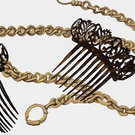quot A paradigm for what is wrong withour adversarial elective system for selecting judges quot
"A paradigm for what is wrong withour adversarial elective system for selecting judges"
Thomas Spargo has an uncanny way, even when he is wrong, or especially when he is wrong, of pointing up flaws in our judicial system.
Last week, the New York State Commission on Judicial Conduct said that Spargo, a state Supreme Court judge and formerly a Berne town judge, should be removed from the bench. His lawyer said that he probably wont appeal.
The commission found that Spargo, to pay for his legal fees, solicited money from lawyers with cases before him. "Using a judicial office to raise money for your own use is as egregious an act of misconduct as there is," said Robert Tembeckjian, counsel to the commission.
Tembeckjian noted that Spargo’s most serious misdeed came out of his need to pay for his defense against the original charges that were "not on the same level."
We first took Spargo to task in this space in November of 2002 when he was wrapping himself disingenuously in the First Amendment. Spargo had pre-empted a hearing on the original charges and won a restraining order. He was challenging the commission in federal court, arguing that its allegations had to do "with the exercise of my First Amendment liberties, including my right to associate with those of my own choosing, and my free right of expression."
Spargo stated in court papers, "The distinguishing feature latched upon by the Commission is the fact that I chose to exercise my constitutional rights while seeking to be elected as town Judge or Supreme Court Judge."
The next year, in February of 2003, Spargo won his challenge in federal court, but reason prevailed on the appeal.
However, Spargos decision made us focus on recent Supreme Court decisions that loosened restrictions on campaign conduct for judges.
In a decision earlier in 2002, Republican Party of Minnesota v. White, the Supreme Court had ruled that a provision in the Minnesota code of judicial conduct, which prohibited judicial candidates from revealing their views on disputed legal or political issues, was unconstitutional.
We believe candidates should be able to reveal their views; it makes for a more informed electorate. If judges are to be elected, citizens must know what they stand for.
But this did not apply to Spargos case. He was unwilling, during the 1999 Berne election for judge, to speak on campaign issues in a pre-election interview because, he said then, judicial candidates arent allowed to.
Spargo was not so meticulous in observing other boundaries. He was accused of spending money for food, drink, or tokens to influence Berne residents to vote for him; of engaging in financial dealings that may be perceived to exploit his judicial position; and of engaging in partisan political activity.
In last weeks commission decision, all 10 members who participated in the process found that Spargo solicited money from lawyers with cases before him.
But on each of two other charges, three commission members dissented.
The first was that Spargo, a highly-regarded election-law attorney, presided over criminal cases as a Berne town judge prosecuted by the Albany County District Attorneys Office without disclosing to the defense that he had rendered legal services to Paul Clynes campaign for district attorney or that the Clyne campaign committee owed him $10,000.
The second was that Spargo, during his campaign for state Supreme Court justice, was the keynote speaker at a political fund-raising event in May of 2001, and that his campaign committee paid $5,000 each to two political consultants, conveying the appearance that he paid them "for their efforts to obtain his nomination for public office," in violation of Election Law as well as the Rules Governing Judicial Conduct.
Richard D. Emery, a commission member who dissented on both charges, wrote that Spargo’s case is "a paradigm for what is wrong with our adversarial elective system for selecting judges."
"In effect," wrote Emery, a New York City lawyer, "the misconduct rules regulating judicial campaigns are a patchwork of compromises and ad hoc judgments which fail to address the central causes of the unseemliness of judicial campaigns: party control and the candidate’s need to raise money."
Although Spargo deserves to be removed from the bench, Emery is right on this point.
New York’s Supreme Court judges, serving on the bottom rung of a three-tiered system, are nominated in conventions that are controlled by political-party bosses. How can these judges serve as impartial arbiters when, in order to be nominated, they must be partisan"
Once nominated, they must garner public support to be elected. They secure money for their campaigns with much of it coming from area lawyers, which raises ethical concerns about impartiality.
This problem is not peculiar to New York State. In states that elect their top judges New Yorks are appointed one candidate will get money from a trial lawyers association, on the plaintiffs side, while his opponent will get money from an insurance lobby or business council on the defendants side. Millions of dollars are spent.
How can a judge running for election under such circumstances be an impartial arbiter from the bench"
Any system can be subverted. We commend the commission for its decision, which we see as an attempt to keep our current system fair and honest. But we believe the case points up systemic problems that need a broader solution.
Melissa Hale-Spencer, editor

